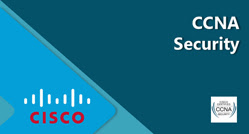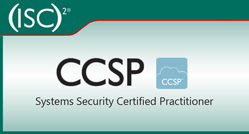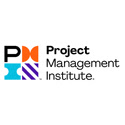What Is Ethical Hacking? An Introduction To Ethical Hacking
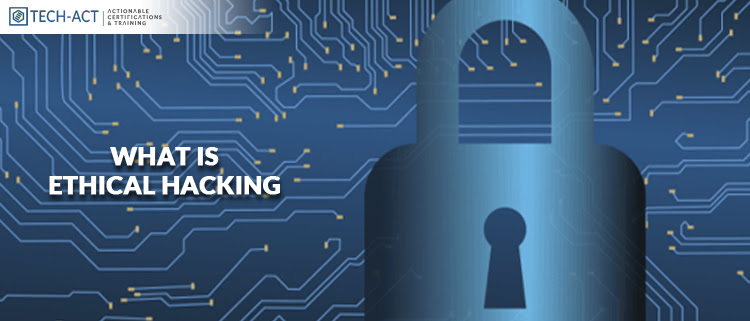
If we ever land up in a situation where we come to know that our system is “Hacked”, this word itself has the potential to make one’s blood run cold. But when someone says “I am an Ethical hacker” some people might get thoughts like… Really? Can hacking be ethical?
Well in that case let me tell you that…. Yes! Hacking can be ethical. Hacking which is done with an intention to defend and not to attack is ethical. Also Ethical hacking is one of the most in-demand career options for IT professionals.
To get a better understanding about ethical hacking, today in this article will cover the below mentioned pointers in detail.
What Is Ethical Hacking?
The different terms used for ethical hacking is “pen testing” or “penetration testing”.
Ethical Hacking involves encroaching activities which are done to find out any threats and existing loopholes in cyber security so that no evil intended attacker can take advantage of it. Hence, any weakness relating to cyber security can cost organizations big time.
For instance, the organization valuable data can be hacked that can tarnish the reputation leading to monetary losses. Therefore, ethical hacking plays a vital role. Ethical hackers smartly discover the existing vulnerabilities within the organizations security systems prior to any other hackers who have bad intentions.
To improve the security systems of the organization, ethical hackers do some significant research. For example, what kind of weaknesses exists in the security system? How many of them are exposed to the attackers? Which part of the system or the information would interest the hacker? Hacker is looking out for which access? The advantage a hacker would gain by hacking the organization information? Has anyone from the cyber security team witnessed the attacking? If yes, were they able to stop it? If no; then how, and when? What would be the suitable ways to overcome the vulnerabilities?
Hence, by finding the answers to the above queries, ethical hackers attack an organization with an intention to build defence mechanism against all the other ill intended hackers.
Ethical hackers are supposed to do some amount of paperwork to get the consensus of the companies so that there is no breach at the end of the day. The organizations whether small, medium or large have to give a written consensus to ensure that they are aware of the positive intent of the ethical hacking operation.
It also safe guards the Ethical hacker from any legal issues that may arise. The Ethical Hacker may not need to disclose his/her methodology of attack which may be the secret of his trade.
Importance of Ethical Hacking:
Today the biggest asset of any business is its “DATA”; therefore, ensuring that the data is safe and sound is the first and foremost priority of any business.
Whether we look at government firms or private firms the amount of data generated on day-to-day basis is huge. Hence, the chances are very high that their sensitive data can be targeted by cyber criminals or hackers or even terrorist groups. The fear of getting hacked has forced the organizations to take preventive security measures which can rest assure them that the data is safe and protected.
Irrespective of the size of the business, organizations globally must take proactive measures like updating the security on daily basis as everyday hackers keep looking out for new ways to penetrate through the barriers of firewalls.
Ethical hackers or White hat hackers have adapted new approach to safety. They perform pen testing to evaluate the security measures of the organization. In simple words they hack the systems of the organization and provide complete & detailed information about the organization’s security posture.
This helps the organization to understand the approach of a hacker which makes them further alert and also reduces the chances of actual threats like data theft. Also when we can understand how a hacker can act then accordingly we can update our security measures. All this gives the organization a confidence that the walls build for its data security are thick and strong enough.
Why become an Ethical Hacker?
Ethical hackers are known as white hat hackers. The Certified Ethical Hacker qualification is the most widely-recognised ethical hacking qualifications globally. Also, it focuses on social engineering. Besides all the important career-based reasons to get into ethical hacking, the job also comes with great satisfaction. Businesses now more than ever need to concentrate on strengthening their network security. Hiring ethical hackers and integrating them into a tech team quickly becomes one of the most important elements of a comprehensive security plan. Knowing your work is the reason that countless people’s data is secured can be very rewarding.
Although IT firms mostly employ ethical hackers, other industries such as airlines, financial institutions and hotels recruit certified ethical hackers.
It’s a constantly changing & challenging industry – Cyber attackers are never going to stop. So whether it’s updating old strategies to keep classic threats at bay or developing new methods of blocking criminals, businesses will always need protection to stay ahead of the game and keep the trust of their customers.
Various Types of Ethical Hacking:
There are various types of ethical hacking. Almost every element of a system can be hacked and to do so in-depth knowledge of each element is must. Let’s take a look at different types of ethical hacking.
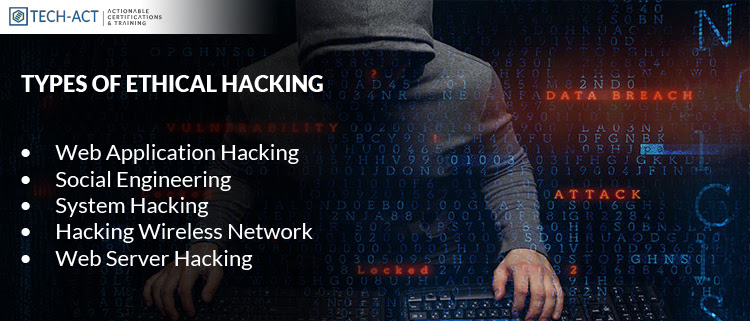
Web Application Hacking : A Web application is an application which is accessed by the users over a network. When an application is exploited by using HTTP i.e. either done by manipulating the application via graphical web interface or by tampering the URI or HTTP elements that are not contained in the URI, this is known as web application hacking.
Social Engineering : It is a technique used by hackers to manipulate the end users and gain information about the organization or computer systems. IT security professionals must understand the concept of social engineering to protect their networks. For instance, who can get targeted? And how social engineering attacks are adapted?
System Hacking : Through system hacking, the hackers find out ways to gain access for the individual computers on a network. It enables the ethical hackers to detect, prevent and counter these types of attacks.
Hacking Wireless Network : Wireless hacking can also be termed as wireless sniffing. Sniffing is the process of capturing and monitoring all the wireless packets from a particular network. Email passwords, FTP passwords, chat sessions can be sniffed. For example few clients (monitors) are connected to a common access point in order to sniff all wireless traffic to this access point; one can put their W90 interface into monitor mode.
Web Server Hacking : In this, the ethical hacker gains an unauthorized control of a web server, though the fundamental reason is to test the server and to identify its software vulnerabilities. They collect the information about the relevant target which involves the process of identifying the target system and collecting the details like IP address, operating system, hardware, network configuration & infrastructure, DNS records etc.
Top Ethical Hacking Courses
- Certified Ethical Hacking Certification (CEH)
EC-Council’s Certified Ethical Hacking Certification (CEH) provides an in-depth knowledge of various attack vectors, preventative countermeasures, and ethical hacking phases. In addition, it will teach you how hackers think and act so you will be better positioned to set up your security infrastructure and shield against attacks. - Global Information Assurance Certification Penetration Tester (GPEN Certification)
The Global Information Assurance Certification Penetration Tester (GPEN Certification) is globally recognized to validate advanced-level penetration testing skills. The GPEN certification is tailored for security personnel whose job responsibilities involve targeting networks to find security vulnerabilities.
- Offensive Security Certified Solution (OSCP)
The Offensive Security Certified Professional (OSCP) certification is designed for network security professionals who want to demonstrate how well they deal with network security vulnerabilities. It is essentially a penetration testing i.e., pen testing exercise in which the candidate acts as an ethical hacker to identify weaknesses in a network system.
- CREST
CREST are an internationally recognized not-for-profit organization with a range of technical information security qualifications. Specializing within penetration testing, i.e., ethical hacking, CREST provides a recognized career path from entry-level to senior testers. Achieving a CREST certification is an aspiration for many, and by achieving one, you’ll join a recognized community of security professionals.
- Certified Penetration Testing Consultant
Certified Penetration Testing Consultant course (CPTC) is designed for IT Security Professionals and IT Network Administrators. The Certified Penetration Testing Consultant certification will teach you the necessary skills to work as a penetration testing team, the exploitation process, and create a buffer overflow against programs running on Windows and Linux while subverting features such as DEP and ASLR.
Conclusion:
Ethical hacking can help in lot of ways like it strengthens computer and network security by performing penetration testing, it enables one to take preventive measures to avoid any security breach situations. Lastly I would conclude by saying that the list of benefits provided by ethical hackers is quite a big therefore Ethical hack Hackers are very much in demand.
If we ever land up in a situation where we come to know that our system is “Hacked”, this word itself has the potential to make one’s blood run cold. But when someone says “I am an Ethical hacker” some people might get thoughts like… Really? Can hacking be ethical?
Well in that case let me tell you that…. Yes! Hacking can be ethical. Hacking which is done with an intention to defend and not to attack is ethical. Also Ethical hacking is one of the most in-demand career options for IT professionals.
To get a better understanding about ethical hacking, today in this article will cover the below mentioned pointers in detail.
What Is Ethical Hacking?
The different terms used for ethical hacking is “pen testing” or “penetration testing”.
Ethical Hacking involves encroaching activities which are done to find out any threats and existing loopholes in cyber security so that no evil intended attacker can take advantage of it. Hence, any weakness relating to cyber security can cost organizations big time.
For instance, the organization valuable data can be hacked that can tarnish the reputation leading to monetary losses. Therefore, ethical hacking plays a vital role. Ethical hackers smartly discover the existing vulnerabilities within the organizations security systems prior to any other hackers who have bad intentions.
To improve the security systems of the organization, ethical hackers do some significant research. For example, what kind of weaknesses exists in the security system? How many of them are exposed to the attackers? Which part of the system or the information would interest the hacker? Hacker is looking out for which access? The advantage a hacker would gain by hacking the organization information? Has anyone from the cyber security team witnessed the attacking? If yes, were they able to stop it? If no; then how, and when? What would be the suitable ways to overcome the vulnerabilities?
Hence, by finding the answers to the above queries, ethical hackers attack an organization with an intention to build defence mechanism against all the other ill intended hackers.
Ethical hackers are supposed to do some amount of paperwork to get the consensus of the companies so that there is no breach at the end of the day. The organizations whether small, medium or large have to give a written consensus to ensure that they are aware of the positive intent of the ethical hacking operation.
It also safe guards the Ethical hacker from any legal issues that may arise. The Ethical Hacker may not need to disclose his/her methodology of attack which may be the secret of his trade.
Importance of Ethical Hacking:
Today the biggest asset of any business is its “DATA”; therefore, ensuring that the data is safe and sound is the first and foremost priority of any business.
Whether we look at government firms or private firms the amount of data generated on day-to-day basis is huge. Hence, the chances are very high that their sensitive data can be targeted by cyber criminals or hackers or even terrorist groups. The fear of getting hacked has forced the organizations to take preventive security measures which can rest assure them that the data is safe and protected.
Irrespective of the size of the business, organizations globally must take proactive measures like updating the security on daily basis as everyday hackers keep looking out for new ways to penetrate through the barriers of firewalls.
Ethical hackers or White hat hackers have adapted new approach to safety. They perform pen testing to evaluate the security measures of the organization. In simple words they hack the systems of the organization and provide complete & detailed information about the organization’s security posture.
This helps the organization to understand the approach of a hacker which makes them further alert and also reduces the chances of actual threats like data theft. Also when we can understand how a hacker can act then accordingly we can update our security measures. All this gives the organization a confidence that the walls build for its data security are thick and strong enough.
Why become an Ethical Hacker?
Ethical hackers are known as white hat hackers. The Certified Ethical Hacker qualification is the most widely-recognised ethical hacking qualifications globally. Also, it focuses on social engineering. Besides all the important career-based reasons to get into ethical hacking, the job also comes with great satisfaction. Businesses now more than ever need to concentrate on strengthening their network security. Hiring ethical hackers and integrating them into a tech team quickly becomes one of the most important elements of a comprehensive security plan. Knowing your work is the reason that countless people’s data is secured can be very rewarding.
Although IT firms mostly employ ethical hackers, other industries such as airlines, financial institutions and hotels recruit certified ethical hackers.
It’s a constantly changing & challenging industry – Cyber attackers are never going to stop. So whether it’s updating old strategies to keep classic threats at bay or developing new methods of blocking criminals, businesses will always need protection to stay ahead of the game and keep the trust of their customers.
Various Types of Ethical Hacking:
There are various types of ethical hacking. Almost every element of a system can be hacked and to do so in-depth knowledge of each element is must. Let’s take a look at different types of ethical hacking.

Web Application Hacking : A Web application is an application which is accessed by the users over a network. When an application is exploited by using HTTP i.e. either done by manipulating the application via graphical web interface or by tampering the URI or HTTP elements that are not contained in the URI, this is known as web application hacking.
Social Engineering : It is a technique used by hackers to manipulate the end users and gain information about the organization or computer systems. IT security professionals must understand the concept of social engineering to protect their networks. For instance, who can get targeted? And how social engineering attacks are adapted?
System Hacking : Through system hacking, the hackers find out ways to gain access for the individual computers on a network. It enables the ethical hackers to detect, prevent and counter these types of attacks.
Hacking Wireless Network : Wireless hacking can also be termed as wireless sniffing. Sniffing is the process of capturing and monitoring all the wireless packets from a particular network. Email passwords, FTP passwords, chat sessions can be sniffed. For example few clients (monitors) are connected to a common access point in order to sniff all wireless traffic to this access point; one can put their W90 interface into monitor mode.
Web Server Hacking : In this, the ethical hacker gains an unauthorized control of a web server, though the fundamental reason is to test the server and to identify its software vulnerabilities. They collect the information about the relevant target which involves the process of identifying the target system and collecting the details like IP address, operating system, hardware, network configuration & infrastructure, DNS records etc.
Top Ethical Hacking Courses
- Certified Ethical Hacking Certification (CEH)
EC-Council’s Certified Ethical Hacking Certification (CEH) provides an in-depth knowledge of various attack vectors, preventative countermeasures, and ethical hacking phases. In addition, it will teach you how hackers think and act so you will be better positioned to set up your security infrastructure and shield against attacks. - Global Information Assurance Certification Penetration Tester (GPEN Certification)
The Global Information Assurance Certification Penetration Tester (GPEN Certification) is globally recognized to validate advanced-level penetration testing skills. The GPEN certification is tailored for security personnel whose job responsibilities involve targeting networks to find security vulnerabilities.
- Offensive Security Certified Solution (OSCP)
The Offensive Security Certified Professional (OSCP) certification is designed for network security professionals who want to demonstrate how well they deal with network security vulnerabilities. It is essentially a penetration testing i.e., pen testing exercise in which the candidate acts as an ethical hacker to identify weaknesses in a network system.
- CREST
CREST are an internationally recognized not-for-profit organization with a range of technical information security qualifications. Specializing within penetration testing, i.e., ethical hacking, CREST provides a recognized career path from entry-level to senior testers. Achieving a CREST certification is an aspiration for many, and by achieving one, you’ll join a recognized community of security professionals.
- Certified Penetration Testing Consultant
Certified Penetration Testing Consultant course (CPTC) is designed for IT Security Professionals and IT Network Administrators. The Certified Penetration Testing Consultant certification will teach you the necessary skills to work as a penetration testing team, the exploitation process, and create a buffer overflow against programs running on Windows and Linux while subverting features such as DEP and ASLR.
Conclusion:
Ethical hacking can help in lot of ways like it strengthens computer and network security by performing penetration testing, it enables one to take preventive measures to avoid any security breach situations. Lastly I would conclude by saying that the list of benefits provided by ethical hackers is quite a big therefore Ethical hack Hackers are very much in demand.

.jpg)
